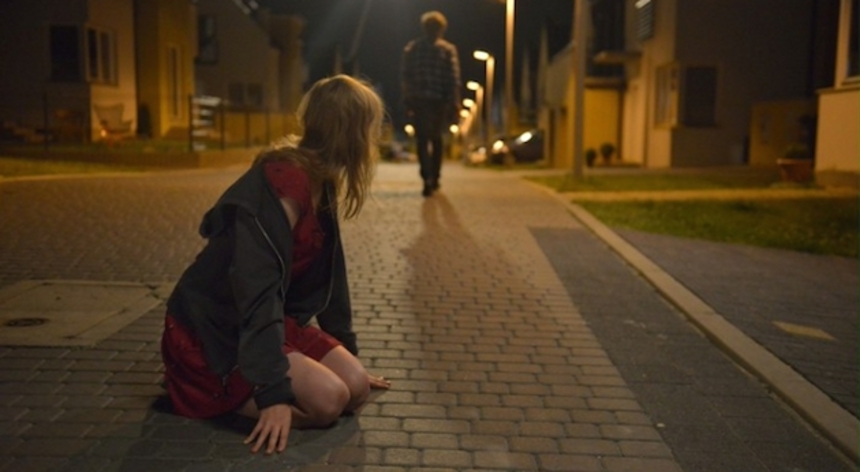Review: THE WORD Explains The Mechanics Of Manipulative Revenge

The script makes the whole affair seem somewhat cryptic as it doesn't necessarily reveal the actual sequence of events but through subtle and adequately logical hints, hidden in some random written and spoken sentences taken out of context, partly explains the motivation for the protagonists' rather senseless behavior and the reasons behind their misguided actions.
Hypothetically, if you're in a relationship and your better half kisses - and only kisses - someone else at a party, would you consider that cheating? Undoubtedly it's a clear-cut sign of disloyalty, but does it necessarily have to result in crime? Most people would probably say no, but not Lila, who becomes so infuriated with her beloved boyfriend's drunken lapse that she plots a most malicious revenge. Guilt-ridden Janek, on the other hand, promises to do everything it takes to save the deteriorating relationship and unknowingly falls prey to cold-blooded, drastically emotional manipulation.
He's got less than 24 hours to atone for a mistake he's made and as the clock ticks down he needs to resolve the distressing tension with Lila. Ironically, he turns into a victim of his own foolishness and unreasonable expectations, and when the crime is finally committed the collective paranoia which shatters a previously peaceful local community changes from saddening to pathetic and back again, taking its toll on all people involved. Some, like Lila's absentee father, take it with a pinch of salt, while others, like Janek's wretched and irritating mother, fall in to despair.
Given the weighty psychological study rooted at the core of its storyline, The Word unfortunately finds a rather silly and mostly unrealistic way of dealing with youngsters and their everyday life. Klaudiusz Dwulit's highly stylized and sharp cinematography explores this vulnerable environment from up close and addresses the most crucial moments of the picture with a reasonable amount of slow-motion sequences, but the irrational, prudish and wooden dialogue ruins the atmosphere even before the fun actually starts. Every move looks badly staged; there's no chemistry between the young actors; a girl drinks a beer as if someone forced her to do so. Honestly, if that's how beach or house teen parties look like these days it's definitely better to stay at home and watch a film.
Though Janek's role in the intensifying scenario is pivotal to understanding the disquieting outcome, it's Lila who's always in position to dictate the terms not only because of her destructive thinking patterns, but also due to transitory camera manipulation that leaves other participants seemingly far from the center of action. Positioned over her shoulder, the camera sheds a light on her psychotic personality traits very clearly. Eliza Rycembel gives a convincingly angry performance, but she can't make up for the script's indecision when it comes to explaining Lila's enigmatic nature. It's ultimately hard to say whether she's a calculated schemer or just a lost girl full of complexes.
The Word revamps a long-established revenge formula with a fresh and satisfyingly dark take on a coming-of-age scenario. Anna Kazejak refrains from concentrating on the definite consequences of a brutal crime and tries to portray the emotional aftermath of traumatic events instead.
In the form of a slow-burning chiller The Word investigates the relationship between love and manipulation, but never offers any moralizing opinions on the subject, and while accusations are being thrown all over the place the blame still lies somewhere in the middle. Both the parents and their children feel guilty and for a good reason. Amidst complications and chaos only Lila stays as stonyhearted as ever and in the final scene, as the camera zooms out on a desolate neighborhood, enters her home as if nothing has happened.

Do you feel this content is inappropriate or infringes upon your rights? Click here to report it, or see our DMCA policy.





